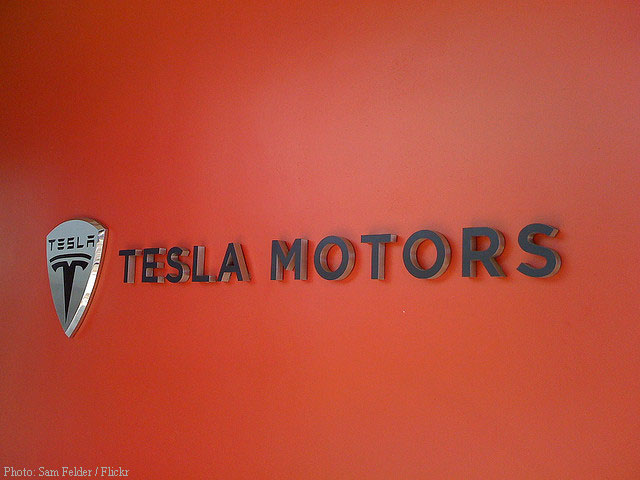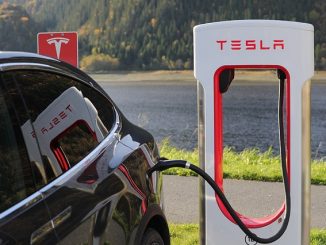In a recent research note to clients, Oppenheimer’s Colin Rusch offered up a rather pessimistic outlook for Tesla Motors (NASDAQ: TSLA), saying that the electric-car maker’s proposed acquisition of renewable energy firm SolarCity Corp. (NASDAQ: SCTY) will require a stunning amount of fresh capital in the next 24 months.
In total, the analyst estimates Tesla will need to raise about $12.5 billion, financed mainly through debt by the end of fiscal-year 2018.
Rusch identified solar panel capex, auto capex, working capital, and operating lease obligations as four key areas where the merged entity will need cash. Specifically, the analyst predicts Tesla, which it’s worth noting currently prints a negative trailing-12 free cash flow of $1.65 billion, will need between $5 billion to $8 billion (or more) in cash in combining its stationary power business with SolarCity. Another $2 billion is also needed to finance its vehicle production goals, as well as cash for working capital and operating lease systems.
Rusch has expressed concerns about the merger of the two companies, and rightly so. Besides the fact Tesla’s capital spending in the second half of current year is estimated to spike by 340 percent compared to the $512 million the company spent during the first half, its most recent quarter, which accounts for the bulk of Tesla’s Model 3 reservations deposits, still recorded $144 million in negative free cash flow. Additionally, the Palo Alto, Calif.-based company is due for $441 million in convertible debt payments by the end of next year.
Rusch also said in his research he believes “investors will be concerned with visibility into the business” and that the way the merged entity reports the performance of its varying segments will be “critical to to the size and interest of the investor pool in Tesla and potential stock movement post-close.”
In related news, Bloomberg reported that Tesla’s CEO Elon Musk has a $1.3 billion revolving line of credit that will keep the company going in terms of providing it with adequate liquidity into next year. The figure, which includes a $1 billion line of credit and $300 million from German banking giant Deutsche Bank (NYSE:DB) for Tesla’s car leasing business, ensures investors that the company won’t need to tap debt or equity markets this quarter.
In other Tesla news, Reuters reports that Germany’s Federal Motor Authority [FMA] has send a letter to Tesla owners, warning them that the use of the Autopilot function in their electric cars requires the driver’s unrestricted attention at all times. The FMA warned Tesla owners that the Autopilot function is purely a driver assistance system and not a highly-automated vehicle that can be operated without the driver’s constant attention, the report added.
The report pointed out that Germany’s Transport Ministry is conducting studies into Tesla’s Model S Autopilot function and based on internal reports seen by ‘Der Spiegel’ the function is being seen as a “considerable traffic hazard.
Tesla’s stock fell 1.86% to $196.51 at close of trading in New York on Friday. The equity is now down about 18% since January 1, and 11% on a year-over-year basis.
The $29.4 billion market cap company is off about 28% from its $269.34-early April 52-week high.




Leave a Reply